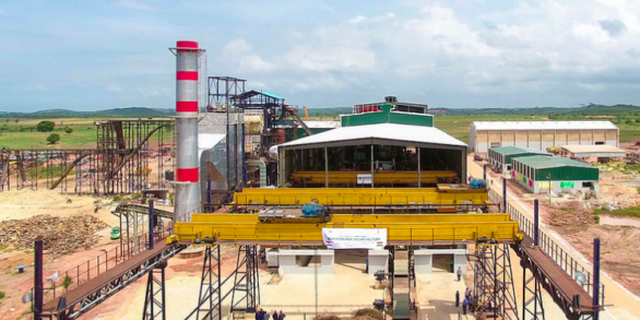Ransford Amoah, a former board secretary of the Komenda Sugar factory, has disclosed that the unnecessary politicization of the factory has led to the delay in full scale commercial duties.
According to him, the initial plan was to engage in “test runs” in 2016 and subsequently go into “full production” in 2017.
He revealed that during the test runs “sugar was produced” and the factory also produced “by-products such as bagasse”.
Mr Amoah revealed that the tests runs were successfully undertaken five months prior to the agreed date for the “processing of sugar cane”.
“I do not see the challenge with the Komenda Sugar factory. The only challenge is the politicization of the factory. The factory did not go into the commercial production, what we did was series of test. Because after putting up the factory… you need to go through test runs, check everything is in order and that was what we did. But the commercial production was not done” he said.
Commencing sugar production
Justifying the halting of sugar production in the factory, Mr. Amoah noted that every government has “its priority” and the factory was the priority project of John Mahama.
Following the commissioning of the plant in 2016, he explained that they were hoping any “successive government” will continue it.
Mr. Amoah explained that the funding under John Mahama’s administration had a “counterpart funding” of $1.5 million from Ghana EximBank.
“The project was [undertaken] with two tranches of loans, $35 million from India Exim; that was for the construction of the sugar factory. Then the second tranche was $24.5 million dollars which was only for sugarcane development, irrigation and outgrow scheme. In November 2016, parliament of Ghana approved that loan and the Indian government also made all the necessary arrangement in February 2017…”
Touching on the intended capacity of the facility, Mr. Amoah disclosed that about “1,250 tonnes” of sugar a day was expected.
That notwithstanding, he revealed that “150 tonnes a day” can equally suffice the operationalization of the factory.
“So, the plan was in the short term we will depend on the out growers who are existing within the central and western regions. These out growers will supply the [sugar] canes to the factory to start work. We planned that by January, we’ll go into the production; that’s the commercial production because the out growers in the catchment area could produce between 500 to 700 tonnes a day” Mr Ransford Amoah noted.
Securing tax incentives for factory
In August this year, Price Waterhouse Coopers (PwC), the transaction advisors to government, on the Komenda Sugar Factory, explained the delay in concluding the Conditions Precedent Agreement to securing tax incentives for the strategic investor.
According to PwC’s Country Senior Partner, Vish Ashiagbor, despite the transaction deadline slated for August, the procedures involved in acquiring tax incentive has delayed the processes.
“There is no problem. What we are working on now is the Tax Incentive Act that will go with the importation of raw sugar and also grant machinery and other inputs that will allow the factory to operate effectively… [This is] because as you probably know, granting tax incentives is not something that anybody [can do]. There is a process that one has to go through”.
Prior to this, the Trade and Industry Minister, Alan Kyerematen, in July told Parliament that plans are underway to ensure the operationalization of the Komenda Sugar Factory before the end of 2021.
According to him, the transaction advisor has been asked to ensure the roadmap for the opening of the factory would have been finalized by the end of August, 2021.


Comments are closed.